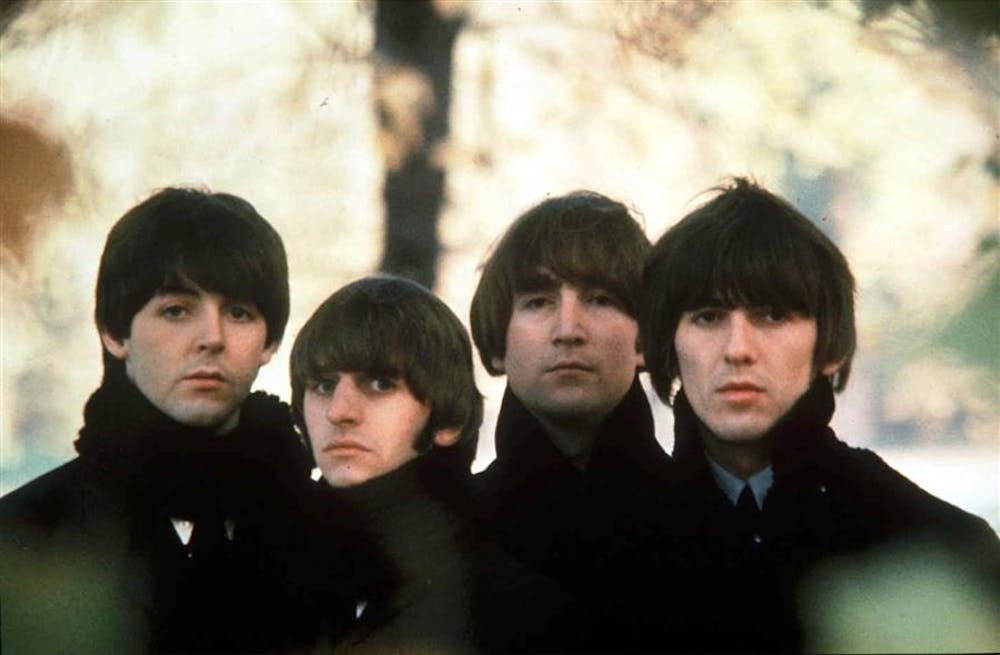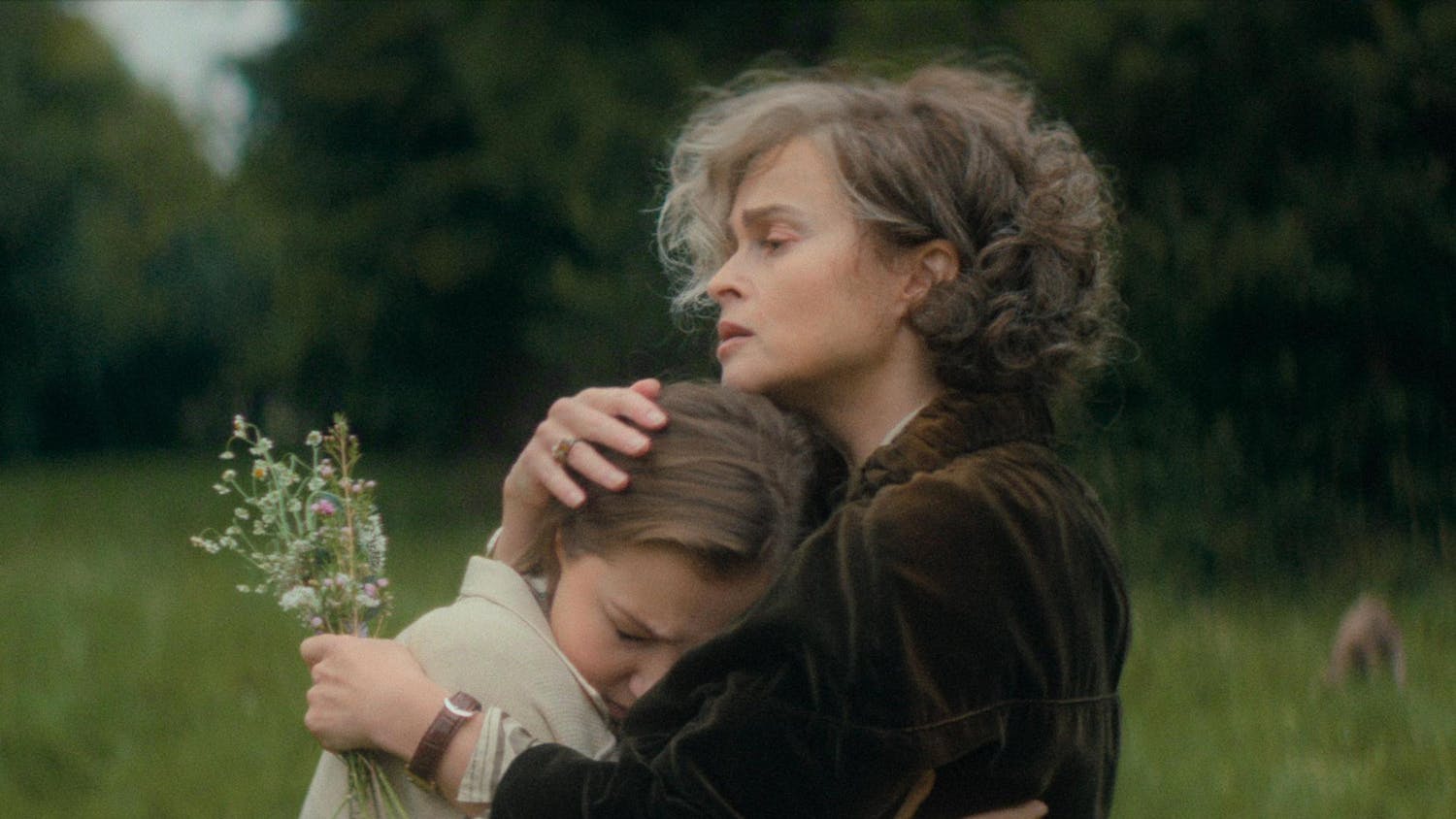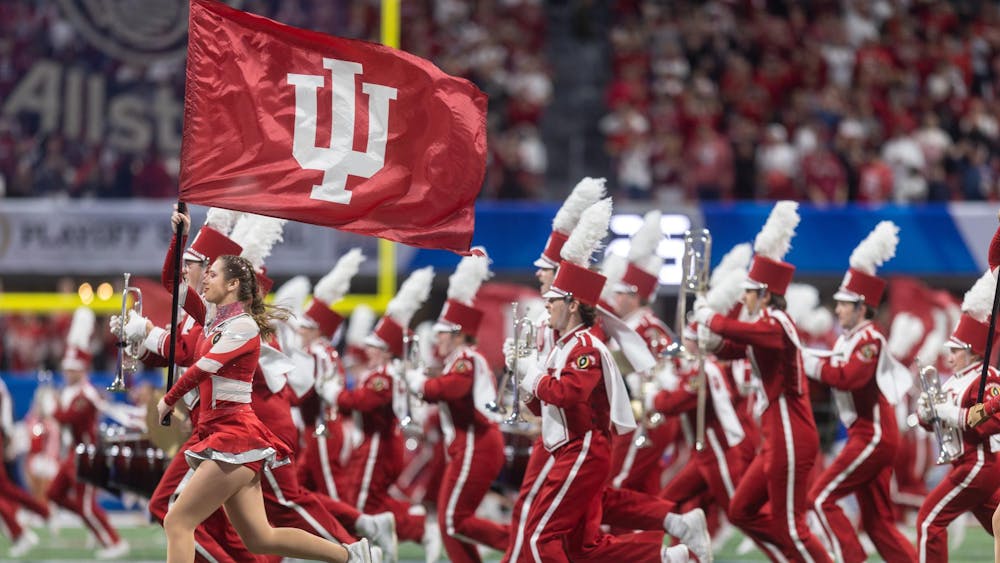On Oct. 31, 1963, the renowned variety show host Ed Sullivan made this remark in London Heathrow Airport.
He had never heard of the group before and was stunned to see Beatlemania well underway in Great Britain.
More than 1,500 ecstatic teenagers congregated at the airport to welcome the band home from a tour in Sweden. When Sullivan asked what all the commotion was, he was told it was because of the Beatles. Sullivan’s curiosity was struck.
Fifty years ago Sunday — Feb. 9, 1964 — marks the day he introduced the Beatles
to the United States.
But before the Beatles’ now-infamous debut on the Ed Sullivan Show, the group performed at the Royal Variety Performance in London, an event that drew performance artists to entertain British royalty.
The Beatles were billed as the seventh act out of 19 and would be playing for none other than Queen Elizabeth and Princess Margaret.
They were nervous, but had not lost any of the charm or cheeky humor that had already made them popular. Earlier that night, John Lennon had told Brian Epstein, the group’s manager, he was planning to crack a joke with the upscale audience.
This came just before the band launched into “Twist and Shout,” their rousing closer.
“For our last number I’d like to ask your help,” John said to the audience.
“Would the people in the cheaper seats clap your hands? And the rest of you, if you’ll just rattle your jewelry.”
With those words and a quick thumbs-up to the Queen Mother, John launched the song.
The gesture of playful defiance and bold whimsy found its American audience a short time later.
Peter Prichard, a London theatrical agent who worked for Sullivan, contacted Epstein soon after about “spreading the gospel of the Beatles in the U.S.A.” on the Ed Sullivan Show.
Sullivan had been curious about the Beatles back in Heathrow, and he was curious now. But he still didn’t know how he was going to promote the group until Prichard mentioned they were the first “long-haired boys” to perform for the Queen Mother.
Aspects of their American debut, from Sullivan’s introductory statement being drowned out by the hysterical audience to the length of the Beatles’ hair, are now infamous.
“They looked so different, and the music sounded so different,” said Mike Conway, who teaches a history of journalism course. “I don’t know what today we would compare it to.”
This is due, in no small part, to the state of the media 50 years ago. A majority of Americans owned a television in 1964, but there were only three channels.
One of the channels was CBS, the network that hosted the Ed Sullivan Show.
Sullivan achieved national acclaim for his abilities to scout young talent, playing host to Elvis Presley eight years before the Beatles and pioneering a young Itzhak Perlman in 1958.
He was recognized as an enduring media presence.
“Ed Sullivan’s just became — from how long it lasted — the most important variety show,” Conway said.
Sullivan was able to pull off unconventional acts, including Elvis’s controversial hips, without sacrificing the reputation he maintained with his older, more conservative followers.
“He was a risk taker,” Conway said, “but he wasn’t going to risk his reputation.”
Few would deny to recognize the foresight Sullivan displayed to premiere the Beatles. More than 73 million viewers tuned in to watch the four youngsters sing “All My Loving.”
The instant and overwhelming popularity made the harsh, critical backlash the group originally received seem culturally quaint. Lesser known to the public is the fact that CBS had completed a film report on the Beatles back in November, which was filed by Alexander Kendrick.
“Besides being merely the latest objects of adolescent adulation and culturally the modern manifestation of compulsive tribal singing and dancing, the Beatles are said by sociologists to have a deeper meaning,” Kendrick said. “They symbolize the 20th century non-hero, as they make non-music, wear non-haircuts.”
The Beatles’ story, originally aired Nov. 22, was re-released.
Jacobs School of Music professor Glenn Gass, who teaches “The Music of the Beatles,” said the band’s popularity marked a change in American culture.
“We could finally exhale,” Gass said. “Suddenly, it was OK to have fun.”
Gass described the Beatles in their early years as the leaders of a bold, new generation that so many would come to see them as later.
He said the band was like America’s hip older brothers.
Gass’ course, taught for more than 30 years, is the longest-running Beatles appreciation course in the nation.
He said his appreciation for the band began when he saw them on the Ed
Sullivan Show.
“That was the moment my life rebooted,” Gass said. “Rock ’n’ roll really defined the teenager as something more than a transition between childhood and adult.”
Elvis may have been responsible for bringing rock ’n’ roll into the public’s focus, but the controversy he created did not make him a well-received public figure in the eyes of adults concerned for the well-being of their children.
But the Beatles kept youth culture a priority in songs like “I Want to Hold Your Hand.”
“They were fun and buoyant and cheery enough to be very child-friendly,”
Gass said.
Gass maintains his intense personal and emotional connection with the Beatles.
When he attended the band’s 1966 performance at the Washington Coliseum — a performance picketed by the Ku Klux Klan angered by John’s famous claim that the band was “more popular than Jesus” — the event left an indelible impression
on him.
“It was like seeing the pope from a mile away,” Gass said.
Many Beatles’ fans have expressed a similar, personal relationship.
“There’s something real about it,” said Douglas Babb, a professor of class about the Beatles and Pink Floyd. “There’s something true about it.”
Babb has a weekly radio show as “Dr. Spin, The World’s Only All Vinyl D.J.” His Friday performance at Smee’s Place in Indianapolis will feature a 12-album homage to the Beatles.
Still touring hot off their television debut in 1964, the Beatles arrived at the Indiana State Fairgrounds in Indianapolis for a 10,000-person show that sold out so quickly, another show was booked later that night.
Ringo Starr, awake and wandering around the fairgrounds at four in the morning, was approached by a policeman and asked if he wanted to take a ride around the town. The two eventually ended up at the policeman’s home in Carmel, where the officer’s unlikely breakfast guest astonished his daughters.
“There’s a lot of folklore behind the Beatles,” Babb said. “But more people are familiar with the music, and far fewer with the story behind it — the friendship and the story that these four guys took together.”
The Grammy award-winning music writer and critic Anthony DeCurtis has spent more than 30 years writing for Rolling Stone and getting to the heart of that story. He has conducted interviews with the Beatles, including George Harrison, in an experience he described as amazing.
“I was really just trying to absorb it,” DeCurtis said. “There were a few moments. The first was when he asked me how Paul was doing. I thought, ‘This is what’s become of the Beatles. George Harrison having to ask me how Paul McCartney was
doing.’”
DeCurtis’ experience also reveals a level of complexity to the Beatles’ relationships with one another after the 1970 breakup. When DeCurtis answered, he thought McCartney was a little controlling.
DeCurtis recalled George responded with a smile.
“There was a kind of intimacy to it,” he said. “It was a complicated moment.”
During seven years of recording, the Beatles marked the transition from simple, fine-crafted pop songs of “Please Please Me” to the symphonic explosions in “Sgt. Pepper’s Lonely Hearts Club Band.”
They took pop music to something greater.
“They dared to say ‘we are high art,’” Gass said. “And it didn’t feel that different to go between the Beatles and Beethoven.”
Fifty years after their appearance on the Ed Sullivan Show, listeners will certainly return to the Beatles canon or perhaps experience it for the first time.
“It’s a generation celebrating the momentous change that took place,” Gass said.
The nostalgia and the feelings surrounding the Beatles remain powerfully tangible and elusively delicate. The feeling is perhaps like a Beatles song covered by a later band. It veils aspects of the original, and yet the original song remains with clarity. With it comes the unmistakable presence of the Fab Four, as close to listeners as they were 50 years ago.
“It’s a passage for a new generation,” Babb said.
The generation that was not born when Ed Sullivan revealed his four mop tops, that never followed the Beatles in real-time through their rapid-fire career, will have to decide for itself how it will interpret the Beatles’ narrative.
Fifty years spent celebrating the Beatles’ legacy may be an attempt to create such a happy ending. For many, however, the day will pass into obscurity.
The Beatles’ music — the love and spirituality it inspires, the companionship it celebrates and the youth it eternalized — will be neither more nor less significant on this anniversary than on any other day.
Still, others will celebrate the times that were and not bother with the narrative at all.
“It was a great pop culture phenomenon, whatever it was,” DeCurtis said. “It
was fun."
'Who the Hell are the Beatles?'

Get stories like this in your inbox
Subscribe





